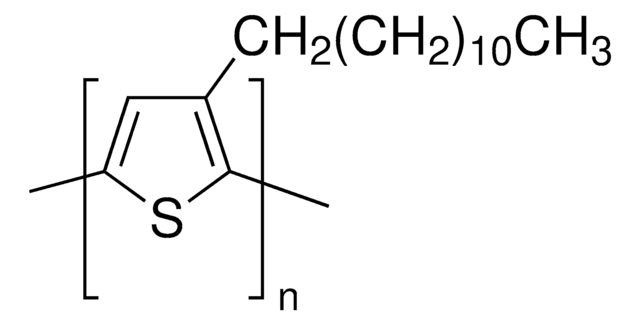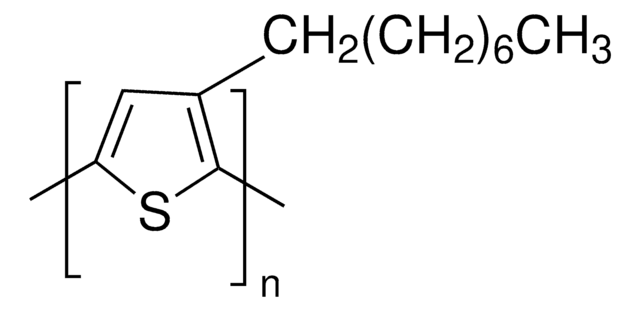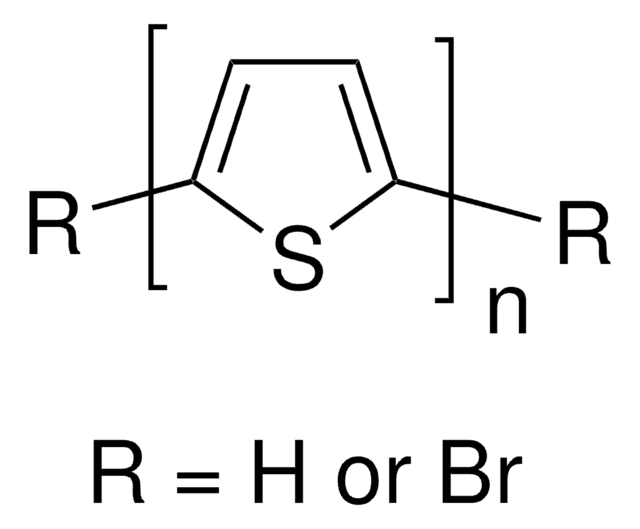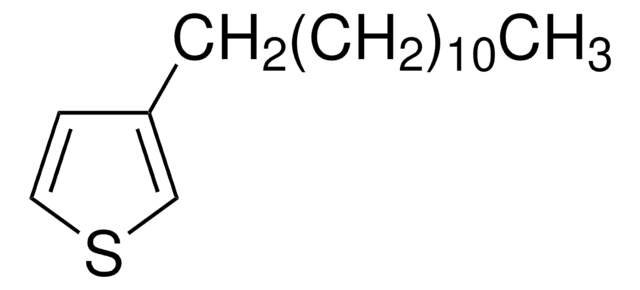510866
Poly(3-dodecylthiophene-2,5-diyl)
regiorandom
Synonym(s):
P3DDT
About This Item
Recommended Products
mol wt
average Mn 30,000
average Mw 70,000
solubility
chloroform, methylene chloride, toluene, and THF: soluble
fluorescence
λex 416 nm; λem 545 nm in chloroform
OPV Device Performance
ITO/PEDOT:PSS/P3DDT/PC61BM (1:3)/LiF/Al
Looking for similar products? Visit Product Comparison Guide
General description
Application
Rechargeable battery electrodes, electrochromic devices, chemical and optical sensors, light-emitting diodes, microelectrical amplifiers, field-effect transistors and non-linear optical materials.
Packaging
Legal Information
Rieke is a registered trademark of Rieke Metals, Inc.
Storage Class Code
11 - Combustible Solids
WGK
WGK 3
Flash Point(F)
Not applicable
Flash Point(C)
Not applicable
Personal Protective Equipment
Regulatory Listings
Regulatory Listings are mainly provided for chemical products. Only limited information can be provided here for non-chemical products. No entry means none of the components are listed. It is the user’s obligation to ensure the safe and legal use of the product.
JAN Code
510866-BULK:
510866-VAR:
510866-1G:
Choose from one of the most recent versions:
Already Own This Product?
Find documentation for the products that you have recently purchased in the Document Library.
Articles
Intrinsically stretchable active layers for organic field-effect transistors (OFET) are discussed. Polymer structural modification & post-polymerization modifications are 2 methods to achieve this.
Our team of scientists has experience in all areas of research including Life Science, Material Science, Chemical Synthesis, Chromatography, Analytical and many others.
Contact Technical Service








